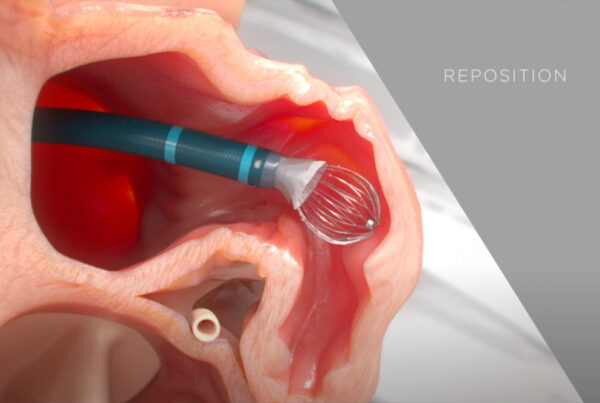Transcatheter aortic valve replacement (TAVR) is a minimally invasive procedure used to treat aortic valve stenosis, a narrowed aortic valve that fails to open properly. With a TAVR procedure, a catheter is inserted in the patient’s leg or chest, guided to the heart, and used to insert a new valve into the diseased aortic valve.
Sound scary? Many patients experience significant anxiety associated with their diagnosis and recommendation for TAVR. Here are a few suggestions for managing your anxiety prior to a TAVR procedure:
Keep the Goal in Mind
It’s important to remember that the purpose of TAVR is to live a longer and more fulfilling life. Common symptoms of a diseased aortic valve can themselves cause patients to experience anxiety. These symptoms include chest pain or palpitations, shortness of breath, and lightheadedness- all of which can limit a patient’s activity level and should subside immediately following TAVR.
Just Relax
Practicing relaxation techniques in the form of mindfulness, meditation, or breathing exercises can help patients alleviate anxiety leading up to TAVR. Different techniques work for different people and many free resources are available online and can be sued on a smartphone. It’s important that patients take time to discover what techniques work for them and dedicate time each day to intentionally address their anxiety.
Take Charge
Patients often experience anxiety related to TAVR due to feeling out of control. Yet everyone has the power to control one thing: their lifestyle. Maintaining an adequate sleep schedule and making heart-healthy choices can help to reduce patients’ anxiety and improve recovery from TAVR. A heart-healthy diet should be rich in fruits and vegetable, whole grains, and lean protein while limiting saturated fats and cholesterol.
Recovery Worries
Although less invasive than open heart surgery, patients worry about recovery time following TAVR. We recommend patients develop a plan for members of their family or support system to offer assistance during their hospital stay and upon their return home. Knowing who will water the plants, take out the trash, and prepare meals can provide peace of mind and reduce stress prior to TAVR.
Pain and physical limitations following TAVR can be another source of anxiety for patients. It is common for patients to experience mild pain at the incision site for a few days following the procedure. It takes time to fully recover from TAVR, but most patients can gradually return to normal daily activities in a matter of weeks.
We at Connected Cardiovascular Care Associates are committed to providing the highest level of care to our patients- in diagnosis, treatment, and support. Should you have any questions regarding TAVR or are experiencing anxiety associated with a scheduled TAVR procedure, please let us know. Our C3 Team is here to support you and your heart health.






